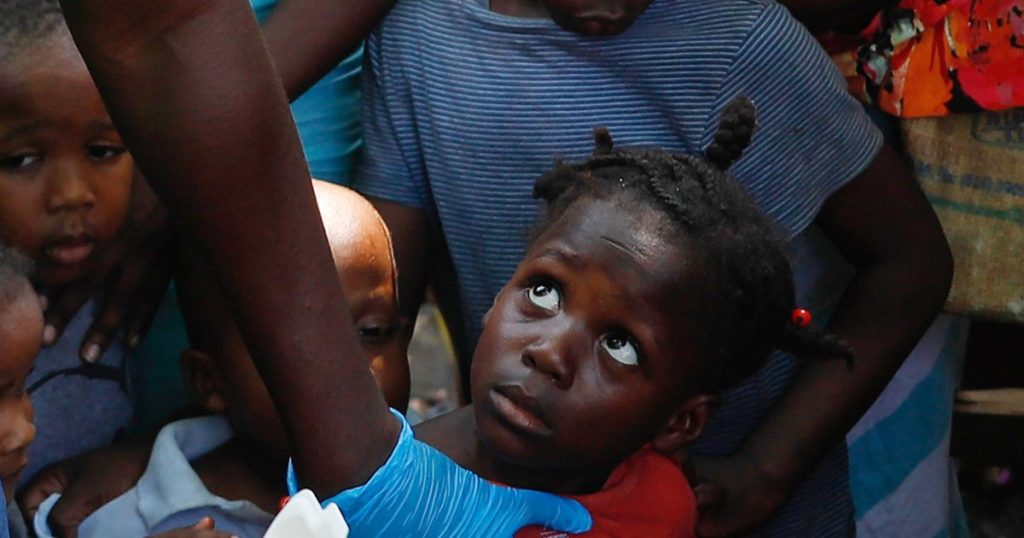In the border town of Ouanaminthe in Haiti, 13-year-old Kelvin Vensy works as a street vendor, selling candles to support his single mother and siblings. Many Haitian children are working in the binational marketplace in order to help their families, as millions of children in Haiti are in need of humanitarian assistance. Due to ongoing violence and the closure of schools in Port-au-Prince, parents are struggling to keep their children safe and educated. UNICEF estimates that more than 500,000 children have lost access to education, with nearly 1,700 schools closed due to gang violence.
In response to the increasing violence in Haiti, many families are seeking refuge in neighboring countries like the Dominican Republic. Danielle Nesly and her family fled to the Dominican Republic from Port-au-Prince to escape gang violence and economic instability. After two years of obtaining work permits and necessary documents, Danielle and Pierre Nesly were able to enroll their daughters in school. The girls are adjusting to their new life, learning Spanish and trying to fit in, despite the challenges they face.
In an effort to address the issue of gang violence, the Haitian government has extended the nightly curfew in Port-au-Prince. The Finance Minister, Michel Patricio Boisvert, announced the extension of the curfew with the goal of restoring order and controlling the situation. Boisvert has been serving as the highest government official in Haiti, as Prime Minister Ariel Henry was prevented from returning to Port-au-Prince following a trip to Kenya due to threats from gangs. The government is working to take measures to combat the violence and instability in the country.
The situation in Haiti has forced many families to make difficult decisions in order to survive. Children like Kelvin Vensy are taking on the responsibility of supporting their families through their work as street vendors. With schools closed and education disrupted by violence, parents are faced with the challenge of keeping their children safe and ensuring they receive an education. The Nesly family’s decision to flee to the Dominican Republic highlights the extreme circumstances many families are facing in Haiti.
The displacement of families and the closure of schools have had a significant impact on children in Haiti, with millions in need of humanitarian assistance. The ongoing violence and instability in the country have created a challenging environment for families trying to survive. The efforts of organizations like UNICEF are crucial in providing support and resources to children and families in Haiti. Despite the difficulties they face, families like the Neslys are determined to create a better future for their children and ensure they have access to education and opportunities for a brighter tomorrow.


